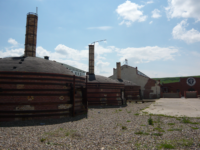Cut costs to reduce income taxes
By Lethbridge Herald Opinon on July 16, 2020.
Strategy would help put Alberta back
on its feet
Franco Terrazzano
CANADIAN TAXPAYERS FEDERATION
For Alberta to get back on its feet, it’ll take thousands of little things like families going out for pizza and restaurants rehiring servers to bring out those pizzas. The best thing Alberta Premier Jason Kenney can do to help those families do those little things is to lighten their tax burdens. And the premier can do it if he stops overpaying for government services and brings those bills in line with costs in other provinces.
The Alberta advantage was built on the pillars of a low and flat income tax, low business taxes and no provincial sales tax. While Kenney is already restoring our business tax advantage after the New Democrats hiked taxes on job creators by 20 per cent, Kenney hasn’t moved on income tax relief.
Now that Alberta’s business tax is at eight per cent, Alberta has the lowest tax rate in Canada and lower than in 44 American states. But more than half of the provinces have lower bottom income tax rates. With struggling families and a battered economy, now is the right time for Kenney to rebuild Alberta’s income tax advantage. For example, Kenney could introduce a flat eight per cent income tax rate and put about $3 billion back into taxpayers’ pockets every year.
But Kenney also needs to tackle the deficit.
“Because of the NDP’s fiscal train wreck, we do not have the fiscal room to reduce personal income tax rates at this time,” Kenney said while campaigning to become premier.
Here’s the reality: Kenney can lower income taxes and have money left over to start reducing the deficit by tying tax cuts with cuts to the government’s ballooning labour costs.
Finance Minister Travis Toews has repeatedly stressed the importance of bringing government compensation costs in line with costs in other provinces. The Alberta government would spend about $4 billion less every year if spending on government labour matched spending in peer provinces, according to labour data in the government’s 2020 budget and doctor costs highlighted in KPMG’s report to the Blue Ribbon Panel.
What was true before COVID-19 is even more important now. Although hundreds of thousands of Albertans have been added to the ranks of the unemployed in only a few months, the burden of the downturn hasn’t been shared equally. Since February, private sector employment shrank by 20 per cent, while government employment has been reduced by eight per cent, according to Statistics Canada. These numbers don’t consider the many private-sector workers that have taken pay cuts to keep their jobs.
“Government employees have gotten through the economic shutdown largely unscathed,” wrote the Fraser Institute’s Tegan Hill and Niels Veldhuis.
But this disparity between the government and everyone else has existed for years. The original oil price collapse in 2014 devastated Alberta’s private sector. By early 2016, about 100,000 oil-patch workers had lost their jobs. But that wasn’t the end of Alberta’s stubbornly long downturn. Following the 2019 federal election, hundreds of Husky employees also lost their jobs in Calgary.
Over the last five years government employees have been shielded from the economic realities that ravaged Alberta businesses and private-sector workers. The Alberta government’s compensation costs increased by $3 billion and more than 10,000 government employees have been added since 2014. These extra costs were loaded on to the backs of taxpayers.
Kenney needs to help struggling Albertans get our economy back on track. He also needs to get a handle on the government’s ballooning labour costs. Tying income tax relief with savings from bringing government compensation in line with costs in other provinces will help put Alberta back on its feet.
Franco Terrazzano is the Alberta Director of the Canadian Taxpayers Federation. Distributed by Troy Media.
20-19



